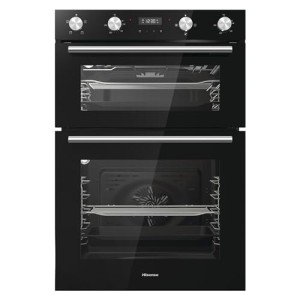Ten Built In Ovens That Really Make Your Life Better
페이지 정보

본문
The Comprehensive Guide to Built-In Ovens
Intro
built in ovens-in ovens are a staple in modern kitchens, combining beauty with performance. They offer a sleek aesthetic and effective cooking capabilities, making them a favored choice for house owners and cooking enthusiasts alike. This article explores the benefits of built-in ovens, their numerous types, essential features to think about, installation suggestions, and maintenance guidance, in addition to frequently asked concerns.
Benefits of Built-In Ovens
Built-in ovens included a range of benefits that add to their popularity. Here are some essential advantages:
- Space-Saving Design: Built-in ovens are developed to fit perfectly into cabinets, enabling a more organized and space-efficient kitchen layout.
- Visual Appeal: They offer a sleek and modern-day appearance that can enhance the overall style of the kitchen.
- Enhanced Functionality: Built-in ovens often come with sophisticated functions and innovations that support various cooking techniques.
- Boosted Cooking Experience: Many built-in designs consist of self-cleaning functions, temperature level probes, and programmable settings, enhancing the cooking experience.
- Increased Property Value: A properly designed kitchen with built-in appliances can improve the worth of a home.
Kinds Of Built-In Ovens
Built-in ovens come in a number of types, each developed to satisfy numerous cooking choices and requirements. Here are the main types:
| Type of built-in electric ovens Oven | Description |
|---|---|
| Single Oven | A single, standalone oven for conventional baking and roasting. |
| Double Oven | Combines 2 ovens in one unit, enabling for numerous dishes to prepare at different temperature levels. |
| Wall Oven | Installed in the wall, releasing up counter area, suitable for small kitchen areas. |
| Convection Oven | Utilizes fans to distribute hot air for even cooking, improving the results of baked goods. |
| Steam Oven | Utilizes steam for healthier cooking options, protecting nutrients in food. |
Key Features to Consider
When selecting a built-in oven, several features can impact efficiency and use. Here are some essential features to bear in mind:
Cooking Modes
- Bake: Traditional baking with bottom heat.
- Broil: Top heat cooking appropriate for browning and crisping.
- Convection: Circulates hot air for even cooking.
- Steam: Uses steam for much healthier cooking options.
Size and Capacity
- Standard sizes normally range from 24 to 30 inches large.
- Think about the internal capacity-- it can range from 3 to 6 cubic feet, allowing for numerous meal sizes.
Controls and Smart Features
- Touchscreen Controls: Easy programming and modifications.
- Smart Technology: Connectivity functions permit remote tracking and control via smartphone applications.
Energy Efficiency
- Look for models with ENERGY STAR scores, showing lower energy consumption.
Safety Features
- Features like automobile shut-off and child locks improve safety during operation.
Setup Tips
Setting up a built-in oven may need professional assistance, but here are some general pointers to bear in mind:

- Choose the Right Location: Ensure there's enough space in your cabinets for installation, remembering ventilation requirements.
- Electrical Requirements: Check that your kitchen's circuitry satisfies the oven's power requirements, specifically for integrated electric ovens designs.
- Level the Oven: Ensure the oven is level to promote even cooking.
- Protect the Oven: Attach it firmly to the kitchen cabinetry to avoid movement throughout use.
Maintenance Advice
Regular maintenance is vital for Built In Ovens the longevity and effectiveness of a built-in oven. Here's how to keep it in leading shape:
- Regular Cleaning: Wipe down surfaces after each use and carry out deep cleaning regularly.
- Check Seals: Inspect door seals for wear and guarantee they keep an airtight fit to enhance energy performance.
- Calibrate Temperature: If food regularly comes out overcooked or undercooked, think about recalibrating the oven's temperature level settings.
- Expert Servicing: Schedule annual check-ups with a trained specialist to preserve optimal efficiency.
Frequently asked questions
What is the difference in between a built-in oven and a freestanding oven?
Built-in ovens are designed to be set up within cabinets, providing a smooth appearance. On the other hand, freestanding ovens are standalone units that usually come with their own cooktop.
Are built-in ovens more expensive than freestanding designs?
Usually, built-in ovens can be more costly due to the included setup costs and advanced features. Nevertheless, prices vary widely based on brand name, size, and performances.

Can I set up a built-in oven myself?
While it is possible to set up a built-in intergrated oven yourself, it is advised to employ an expert to make sure proper setup, particularly if adjustments to kitchen cabinetry or electrical work are needed.
How typically should I clean my built-in oven?
It is suggested to clean your built-in builtin oven routinely after heavy use. For much deeper cleanings, use the self-cleaning function if offered or regularly carry out manual cleansing to avoid accumulation.
Built-in ovens are a valuable addition to any kitchen, using both aesthetic appeal and advanced cooking capabilities. By understanding their types, features, setup, and maintenance requirements, homeowners can make educated choices that enhance their cooking experience and boost the overall value of their homes. As kitchen styles continue to develop, built-in ovens will likely stay a popular option for modern homes.
- 이전글10 Island Extractor Hood Techniques All Experts Recommend 25.05.18
- 다음글The 10 Most Scariest Things About Island Range Hood 25.05.18
댓글목록
등록된 댓글이 없습니다.